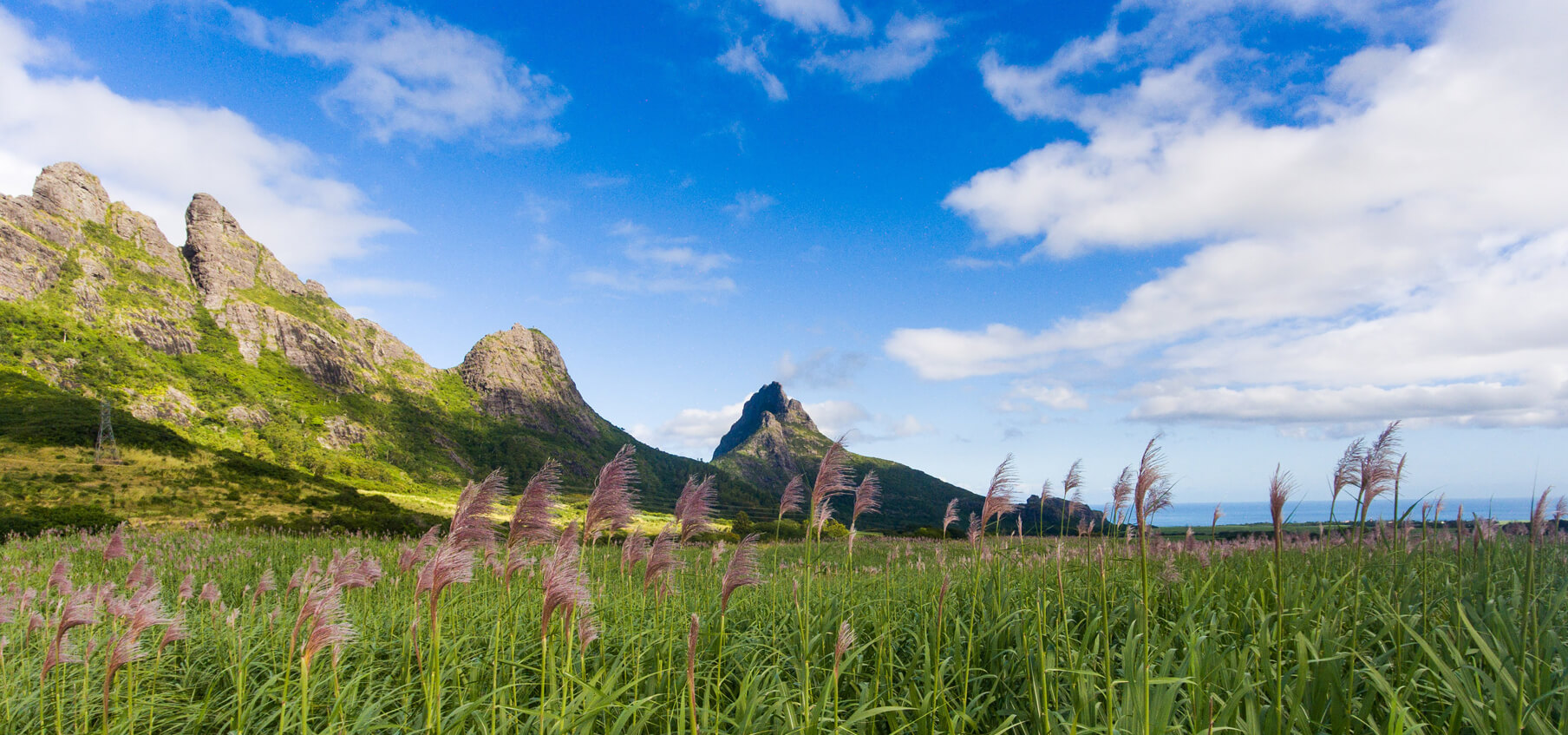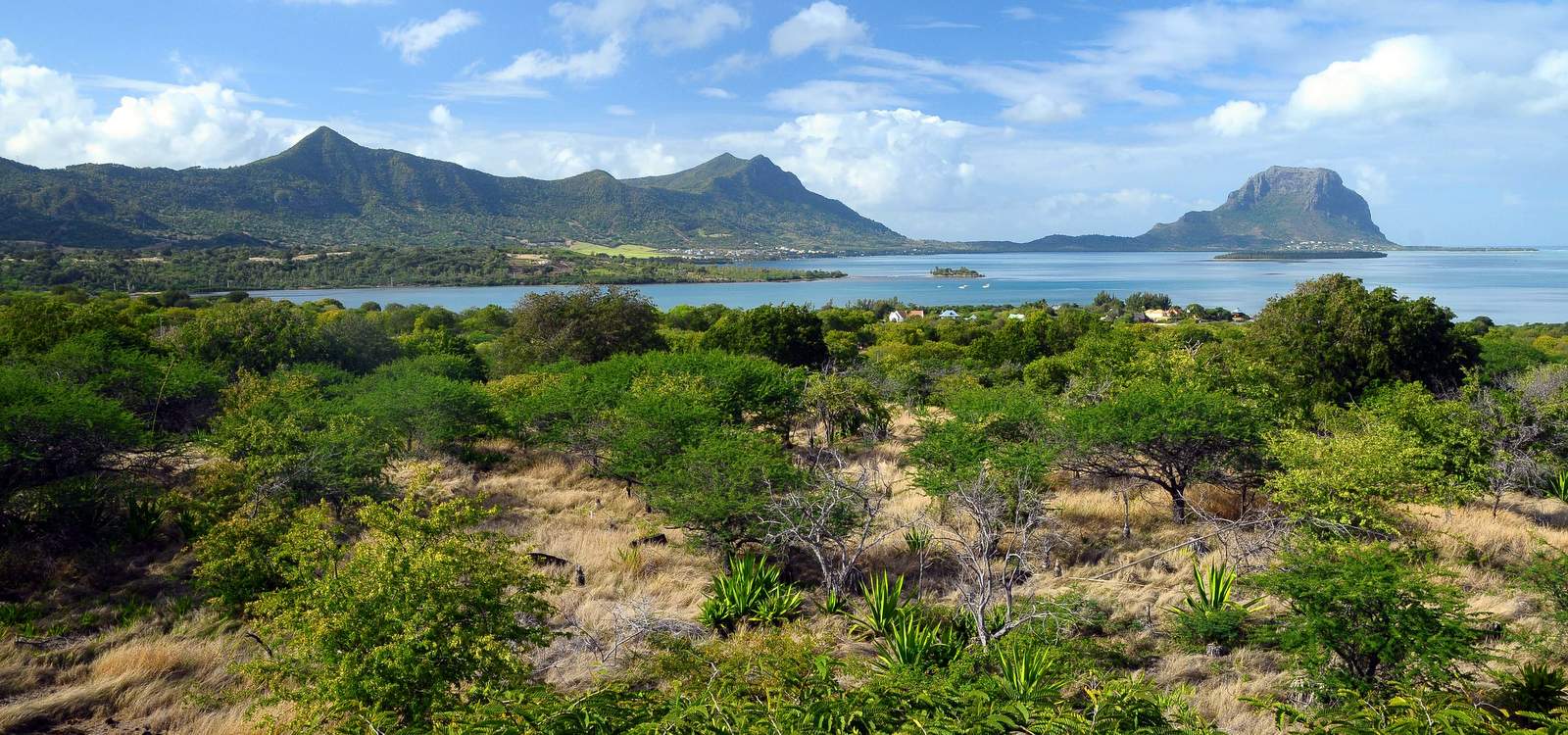Mauritius' Significance in Sustainable Real Estate Development
Mauritius, renowned for its pristine beaches and diverse ecosystems, understands the delicate balance between development and conservation. The island's commitment to sustainable practices has been reinforced by its vulnerability to climate change and the need to safeguard its natural resources for future generations. Consequently, sustainable real estate development has become a priority, with initiatives like Harmonie leading the way. Harmonie is a prime example of how Mauritius is integrating eco-friendly design and renewable energy solutions into its real estate projects. By prioritising sustainability, Mauritius is setting a positive example for other countries in the real estate industry to follow.
The Harmonie Golf and Beach Estate Project
Nestled on the western coast of Mauritius, the Harmonie Golf & Beach Estate is a visionary project that seamlessly blends luxury living with environmental stewardship. Spanning 150 hectares, this ambitious undertaking aims to create a sustainable community that coexists harmoniously with nature. Featuring eco-friendly design elements such as solar panels and rainwater harvesting systems, the Harmonie Golf & Beach Estate sets a new standard for sustainable development in Mauritius. By incorporating renewable energy solutions and green building practices, this project showcases the potential for environmentally conscious real estate projects to thrive in the region.
Harmonie's Sustainable Vision
The project incorporates renewable energy sources, green building practices, and water conservation efforts to minimise its environmental impact. By prioritising sustainability, Harmonie sets a new standard for responsible real estate development in Mauritius and beyond.
Integration with the Natural Environment of the West
Since its inception, Harmonie's design philosophy has been rooted in the principles of sustainability. The development's approach is centred on integrating with the natural environment and adapting to the site's unique characteristics rather than imposing an artificial aesthetic.

Adapting Design to the Site
The project's architects and planners have meticulously studied the site's ecology, hydrology, and geomorphology, ensuring that the design resonates with the land's inherent beauty and respects its environmental constraints. This approach has resulted in a layout that minimises disturbance to the landscape and maximises the preservation of valuable natural features.
Respect for Environmental Constraints
Harmonie's developers understand that sustainable development requires more than just lip service; it demands a deep reverence for the environment. Consequently, the project has implemented stringent measures to protect ecological hotspots, retain existing valuable trees and habitats, and safeguard cultural sites that hold historical significance.
Environmental Sustainability Initiatives by Harmonie
Harmonie's commitment to environmental sustainability is evident in their use of green building materials, energy-efficient design, and water conservation strategies. These initiatives not only reduce the project's carbon footprint but also contribute to the overall health and well-being of the surrounding ecosystem.
Nature Conservation
Harmonie's nature conservation efforts extend beyond the project site, with partnerships in place to support local wildlife habitats and promote biodiversity in the region. By prioritising the protection of natural resources, Harmonie is ensuring a sustainable future for generations to come.

Wetland Habitat Creation and Restoration
One of Harmonie's most ambitious undertakings is the creation and restoration of over 6 hectares of wetland habitat, a critical ecosystem that supports a diverse array of plant and animal life. By recreating the original wetland conditions that existed before human intervention, the project aims to provide a sanctuary for indigenous species and contribute to the overall biodiversity of the region.
Salt Pan Rehabilitation
The site's rich cultural heritage is also being preserved through the rehabilitation of two historically significant salt pans. These ancient structures, once integral to the island's salt production, will be revitalised, serving as a tangible link to Mauritius' past and providing educational opportunities for visitors and locals alike.
Native and Endemic Flora
Harmonie's commitment to environmental stewardship extends to its landscaping choices. The development will prioritise the planting of native and endemic flora species, creating a natural tapestry that celebrates the island's unique botanical heritage while minimising the introduction of invasive species.

Invasive Species Management
To protect the delicate ecological balance, Harmonie has implemented a comprehensive pest and invasive species management plan. This proactive approach aims to prevent the introduction and spread of non-native species, ensuring that natural habitats remain pristine and undisturbed.
Habitat Connectivity and Biodiversity
The development's design incorporates large habitat patches and corridors, facilitating the movement of wildlife and promoting biodiversity. By connecting these internal habitats to the wider landscape, Harmonie aims to create a harmonious coexistence between human settlements and the natural world.
Resource Efficiency
Harmonie also focuses on resource efficiency by implementing water conservation. This effort aims to minimise the development's impact on the environment while promoting long-term sustainability.
Earthworks Minimisation and Local Materials
Harmonie's commitment to resource efficiency is evident in its approach to earthworks and material sourcing. The project aims to minimise the volume of earthworks, thereby reducing fuel consumption during construction. Additionally, a strong emphasis is placed on utilising locally sourced materials, minimising the environmental impact of transportation, and supporting the local economy.
Water Management and Irrigation Strategies
In a region prone to water scarcity, Harmonie has implemented innovative strategies to conserve this precious resource. The project's irrigation system will be supplied entirely by non-potable water sources, reducing the strain on the island's freshwater reserves.
Efficient Irrigation System Design
The irrigation system itself has been meticulously designed to maximise water efficiency. Features such as weather stations, soil moisture sensors, and individual head controls will ensure that water is delivered precisely where and when it is needed, minimising waste and promoting sustainable water management.
Energy Efficiency
In addition to water conservation efforts, the project also focuses on energy efficiency. Utilising solar panels and energy-efficient pumps will further reduce the environmental impact of the irrigation system, making it a truly sustainable solution for the island's agricultural needs.
Electric Golf Carts
Harmonie is committed to reducing its carbon footprint by embracing clean transportation solutions. The entirety of the golf cart fleet will be electric-powered, eliminating emissions and contributing to a greener golfing experience.
Renewable Energy Integration
The development is exploring the integration of micro-renewables, such as solar panels, into its building designs. By harnessing the power of the sun, Harmonie aims to reduce its reliance on fossil fuels and contribute to the global effort to combat climate change.
Sustainable Maintenance Practices
Harmonie's commitment to sustainability extends beyond the construction phase. The project will adopt an organic-based approach to golf course maintenance, minimising the use of chemicals and prioritising environmentally friendly practices. This holistic approach ensures that the development's long-term operations remain in harmony with nature.
Harmonie’s Community and Cultural Integration
Harmonie recognises that sustainable development is not just about preserving the environment but also about empowering local communities. The project is expected to create around 600 job opportunities for the Black River community, as well as indirectly supporting over 2,000 additional jobs through its supply chain and associated works.
The rehabilitation of the salt pans is not only an environmental initiative but also a celebration of Mauritius' rich cultural heritage. By restoring these historical structures, Harmonie is preserving a tangible link to the island's past, ensuring that future generations can appreciate and learn from the traditions that shaped their community.
Harmonie aims to be more than just a real estate development; it aspires to be a living classroom. Through partnerships with local educational institutions and community groups, the project will promote environmental awareness and provide opportunities for hands-on learning about the island's flora, fauna, and natural systems. While Harmonie will undoubtedly attract visitors from around the world, the development is also dedicated to serving the local community. Plans are underway to establish recreational facilities and activities that cater to non-golfers, fostering a sense of inclusivity and promoting overall community well-being.

Climate Action and Resilience in the Harmonie Project
Harmonie recognises the urgency of addressing climate change and is taking proactive steps to reduce its carbon footprint. From minimising earthworks and promoting local material sourcing to embracing clean transportation and renewable energy, the development is incorporating multiple strategies to mitigate its environmental impact.
Located in a region prone to tropical cyclones, Harmonie has been designed with resilience in mind. The development's infrastructure and landscaping have been carefully planned to withstand extreme weather events, ensuring the safety of residents, and minimising the risk of environmental damage. As mentioned earlier, the integration of renewable energy sources, such as solar panels, is a key component of Harmonie's climate action strategy. By harnessing the power of the sun, the development aims to reduce its reliance on fossil fuels and contribute to the global effort to combat climate change.
Harmonie Beachcomber Golf : Geo Certification
Harmonie Beachcomber Golf is also in the process of obtaining a Geo Certification, further solidifying its commitment to sustainable practices. This certification recognises the development's efforts to preserve and protect the natural environment while providing a high-quality living experience for its residents. Geo Certification is awarded to developments that demonstrate a strong commitment to environmental stewardship and sustainable practices. Harmonie Beachcomber Golf's dedication to preserving the natural environment sets it apart as a leader in eco-friendly real estate development.

18-hole Harmonie Beachcomber Golf Course
The future Harmonie Beachcomber Golf Course, an 18-hole course, is intended to appear to have existed forever and to have gotten even more exquisite with time. It has been designed by Sandlake Golf Design, whose architect, Olivier Dongradi, is known for designing some of Europe's most famous golf courses, such as the Golf & Country Club de Maison Blanche in Geneva and the Château d'Augerville in Paris. With curves that follow the topography naturally and preserve the surrounding plants in a wild, untamed setting, it mixes in perfectly with the surrounding area. This stunning location serves as a biodiversity reservoir that will be utilised to design the island's only course, with distinct personalities for each hole. The course is designed for all players and offers demanding play, requiring technical skill, accuracy, and strategy. The 5th hole, a signature par 3 set in volcanic rocks and lush vegetation, offers a stunning view of the lagoon and ocean, making it a memorable experience for golfers.
Learn more about Harmonie Beachcomber Golf Course.
Green Design of Harmonie Golf Villas
Each of the three villa designs prioritises natural ventilation, ample lighting, and breathtaking views. With carefully crafted architecture, each villa boasts green lung patios at its core, bringing in refreshing airflow, lush vegetation, and sunlight. The large roofs and sliding screens seamlessly blend the villas into their surroundings while offering protection from intense sunlight and heavy rainfall. Meticulously chosen materials keep living spaces cool and maintain air quality, prioritising low-carbon and locally sourced options. Incorporating cutting-edge technology, such as lightweight concrete blocks and energy-efficient windows, minimises environmental impact during construction and daily use. Additionally, the villas can be equipped with photovoltaic solar panels and battery storage, providing the option for off-grid living.
Invest in a Sustainable Real Estate Development
The Harmonie Golf and Beach Estate stands as a shining example of sustainable real estate development, not just in Mauritius but globally. By harmonising luxury living with environmental stewardship, the project has set a new standard for responsible and mindful development. Its innovative approaches to resource efficiency, nature conservation, and community integration serve as a blueprint for others to follow.
Ultimately, Harmonie's success lies in its ability to strike a delicate balance between economic growth and environmental preservation. By demonstrating that these two seemingly opposing goals can coexist in harmony, the development serves as a powerful reminder that sustainability is not just a luxury but a necessity for the future of our planet.
As Mauritius continues to embrace sustainable practices, projects like Harmonie will undoubtedly inspire others to follow suit, paving the way for a more sustainable and resilient future for the island and the world beyond.





